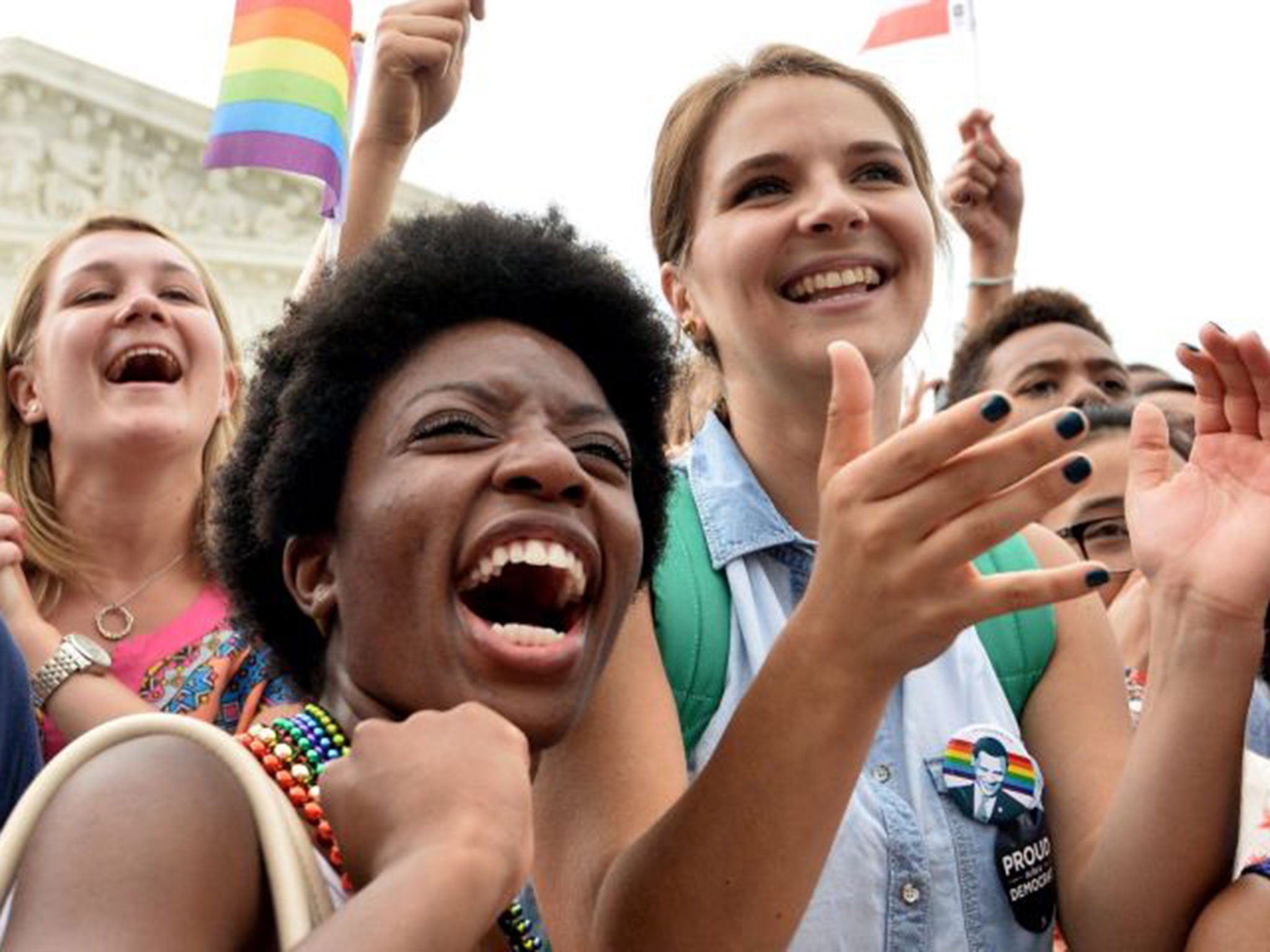Gay marriage: Seven key things to know about Supreme Court ruling
Decision has opened way for same-sex marriage in all 50 US states

The US’s highest court has ruled that the country’s constitution supporters same sex marriage.
Observers said the 5-4 decision was probably the most significant decision about marriage in more than four decades. It also drew stark, almost bitter denunciations from those members of the US Supreme Court who dissented.
Here are seven things to know ruling and its implications:
Illegal versus legal
Before Friday’s ruling, gay marriage was banned in 13 of the US states – Arkansas, Georgia, Kentucky, Louisiana, Michigan, Mississippi, Missouri, Nebraska, North Dakota, Ohio, South Dakota, Tennessee and Texas. The judgement means it is now legal in all 50 states.
Court decision
In the case, Obergefell et al v Hodges, five justices ruled that the Constitution provides the right to same sex marriage. The court’s majority was written by the so-called “swing” Justice Anthony Kennedy, and joined by the court’s liberal wing, Ruth Bader Ginsburg, Elena Kagan, Sonia Sotomayor and Stephen Breyer. Those dissenting against the decision were Justice John Roberts, Antonin Scalia, Clarence Thomas and Samuel Alito.
14 Amendment
The court’s decision answered two questions – did the Constitution's 14 amendment require a state to license a marriage between two people of the same sex and did it require the state to recognise a same-sex marriage that was performed legally in another state. The court ruled “yes” to both, according to the Acton Institute blog. Mr Kennedy wrote: “The right to marry is a fundamental right inherent in the liberty of the person, and under the Due Process and Equal Protection Clauses of the 14th Amendment couples of the same-sex may not be deprived of that right and that liberty.”
Why not leave it up to the states?
Justice Kennedy explained the Court’s reasoning by saying, “While the Constitution contemplates that democracy is the appropriate process for change, individuals who are harmed need not await legislative action before asserting a fundamental right.”
What happens now?
The announcement was met by a flurry of marriage action, as couples in all 13 of the states where marriage was previously prohibited, set about trying to tie the knot. In Mississippi, such actions were prevented by the state’s top legal officer, Jim Hood, who said a federal appeals court in New Orleans must first lift a hold on a gay-marriage case from Mississippi before licenses can be handed out.
Reaction from opponents
Some of the reaction from opponents was outspoken and strident, such as that from Mike Huckabee, a former Republican candidate for the White House. Mostly, however, there was a tepid responses from some Republicans who, it appears, would like the gay marriage debate to fade away, the Associated Press said.
Church
Some religious leaders were immediately outspoken. The US Conference of Catholic Bishops said it was “profoundly immoral and unjust for the government to declare that two people of the same sex can constitute a marriage”. Evangelical leaders in the Southern Baptist Convention said there could be no capitulation in defending traditional marriage because “biblical authority” requires the struggle against same-sex marriage to continue. At least 90 evangelical leaders said they believed there was an “enduring truth that marriage consists of one man and one woman”.
Join our commenting forum
Join thought-provoking conversations, follow other Independent readers and see their replies
Comments
Bookmark popover
Removed from bookmarks